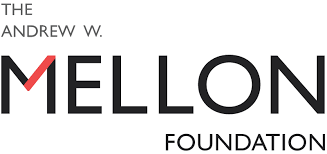| 21 Mar 2019 - 22 Mar 2019 | All day | Room S1, Alison Richard Building, 7 West Road, Cambridge CB3 9DT | |
- Description
- Programme
Description
Workshop organised by the Religious Diversity and the Secular University project at CRASSH.
Each of the four annual workshops of our project Religious Diversity and the Secular University focuses on a specific academic discipline, and this one is devoted to anthropology. The genesis of anthropology as a discipline was moulded from mid-19th century philological and archaeological excavations of sacred sites, the trajectories of folklore and the construction of linguistic families. From this emerged certain Semitic archetypes that were seen as frozen in time and incapable of progress. The classificatory concern of anthropology arose in an époque shot-through with an imperialist mind-set and a desire to civilize ‘the native’ beyond Christendom In tandem with the rise of the nation-state as the sole analytical grid for reading human culture, interaction and community-making. In this cauldron, early anthropologists, both disenchanted with and seeking to re-enchant society, posed questions of the religious and the secular. While this is the legacy on which contemporary anthropology sits it is also perhaps because of this genesis that anthropology was one of the first disciplines to undergo so thorough an analysis of its own reason, method and epistemology. To this end, in the latter half of the twentieth century, many anthropologists were at the forefront of a conscious blurring between religious observance and observing religion through the practice of ethnography. Today such rigorous reflexivity continues to stick most keenly to the ethnographic as a mode of study and reflection and one, which brings people close to human feeling and understanding. This workshop brings together six distinct voices from multiple areas of anthropology and sociology and over a wide variety of geographies to discuss the legacy of anthropological and religious intertwining, institutionally, within universities, methodologically, in our contemporary practice of ethnography and participant observation, and through an interrogation of such notions as pluralism, the post-secular, and orthodoxy.
We will be hosting:
Orit Avishai (Fordham), Matthew Engelke (Columbia), Mayanthi Fernando (UCSC), Majid Hannoum (Kansas), Timothy Jenkins (Cambridge), Yael Navaro (Cambridge) with responses from Charis Boutieri (King’s College London), Yulia Egorova (Durham), Ben Gidley (Birkbeck), Arun Rasiah (Holy names), Teije Hidde Donker (Cambridge), Alison Scott-Baumann (SOAS), and Lea Taragin-Zeller (Woolf Institute).
Six papers will be pre-circulated to participants, who are asked to commit to attending both days, from 11.00 on Thursday to 15.30 on Friday.

‘Religious Diversity and the Secular University’ is funded by the Andrew W Mellon Foundation to support a multi-disciplinary examination of the interplay between religion, secularism, and the role of the university, reference #41600622.
Programme
Day One: Thursday 21 March 2019 Room S1 |
|
| 10:30 - 11:00 | Registration & Coffee |
| 11:00 - 12:30 | Matthew Engelke (Columbia University) ‘A Mode of Enchantment within Anthropology’ Respondent: Ben Gidley (Birkbeck University of London) |
| 12:30 - 14:00 | Lunch |
| 14:00 - 15:30 | Timothy Jenkins (University of Cambridge) ‘Using Robert Orsi’s The Madonna of 115th Street (Yale U.P. 2010) to think about contemporary Humanities research within the overall project of ‘Religious Diversity in the Secular University’’ Respondent: Arun Rasiah (Holy Names University) |
| 15:30 - 16:00 | Coffee |
| 16:00 - 17:30 | Mayanthi Fernando (University of California, Santa Cruz) ‘Supernatureculture? Thinking about and beyond the secularity of the post-humanist turn’ Respondent: Lea Taragin-Zeller (Woolf Institute) |
Day Two: Friday 22 March 2019 Room S1 |
|
| 09:30 - 11:00 | Yael Navaro (University of Cambridge) ‘Violence and Spirituality: Khidr Cosmography at the Turkish/Syrian Interface’ Respondents: Teije Hidde Donker (University of Cambridge), Yulia Egorova (Durham University) |
| 11:00 - 11:30 | Coffee |
| 11:30 - 13:00 | Majid Hannoum (University of Kansas) ‘Migrant Problems: Notes on Colonial Culture and Postcolonial Events’ Respondent: Charis Boutieri (King’s College London) |
| 13:00 - 14:00 | Lunch |
| 14:00 - 15:30 | Orit Avishai (Fordham University) ‘Critical Ethnography and the Secular University: Diversity and the Limits of Engaging Religious Others’ Respondent: Alison Scott-Baumann (SOAS University of London) |

